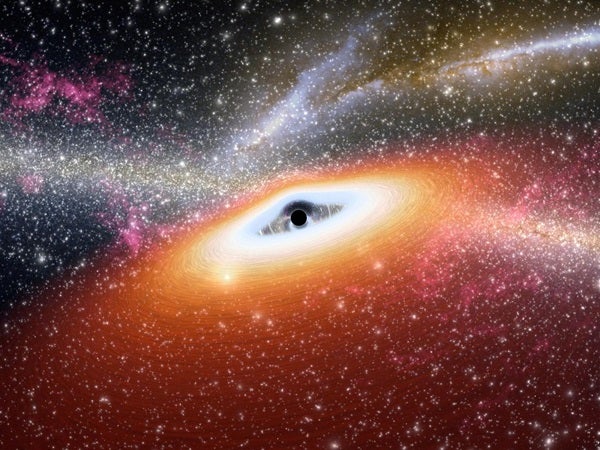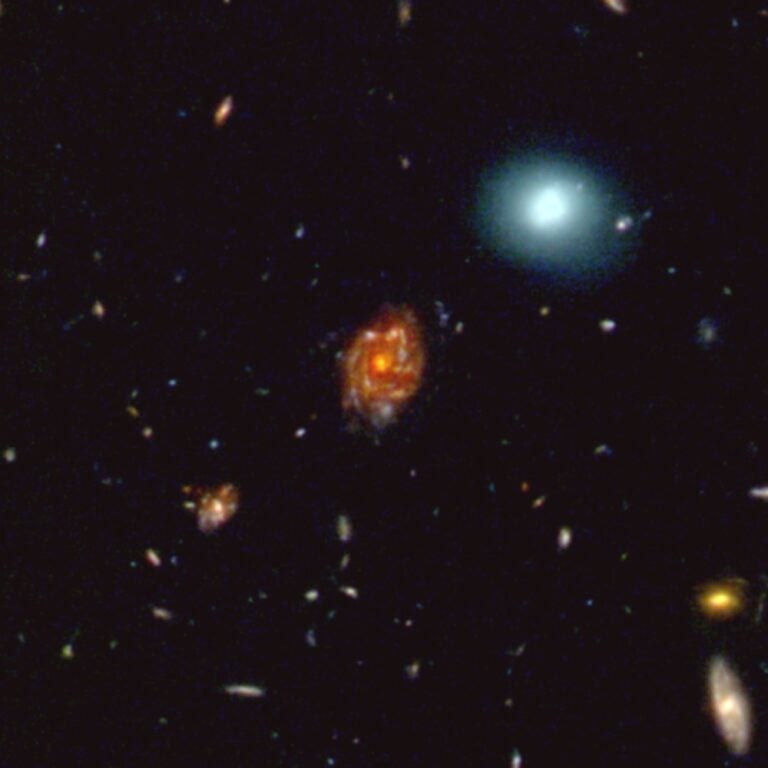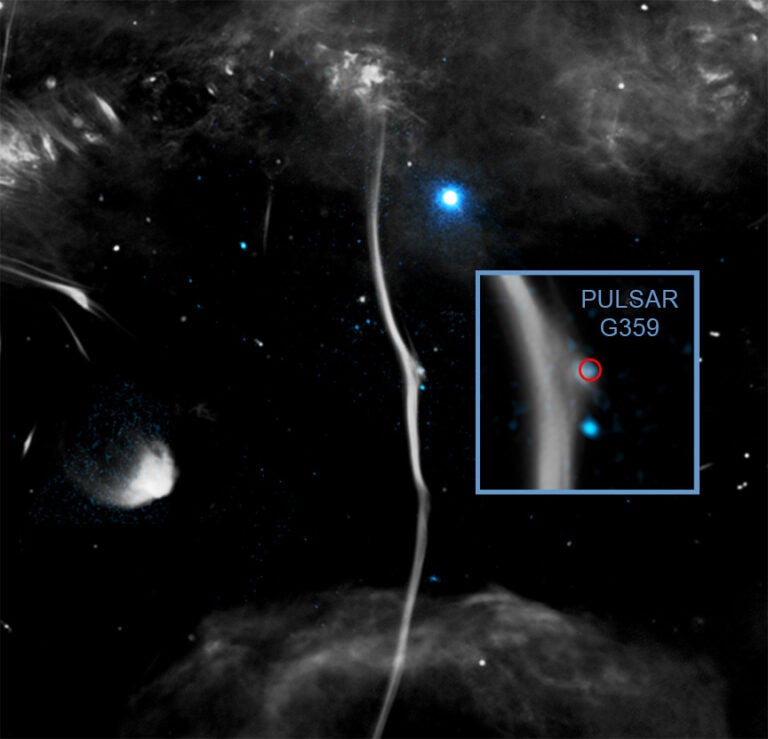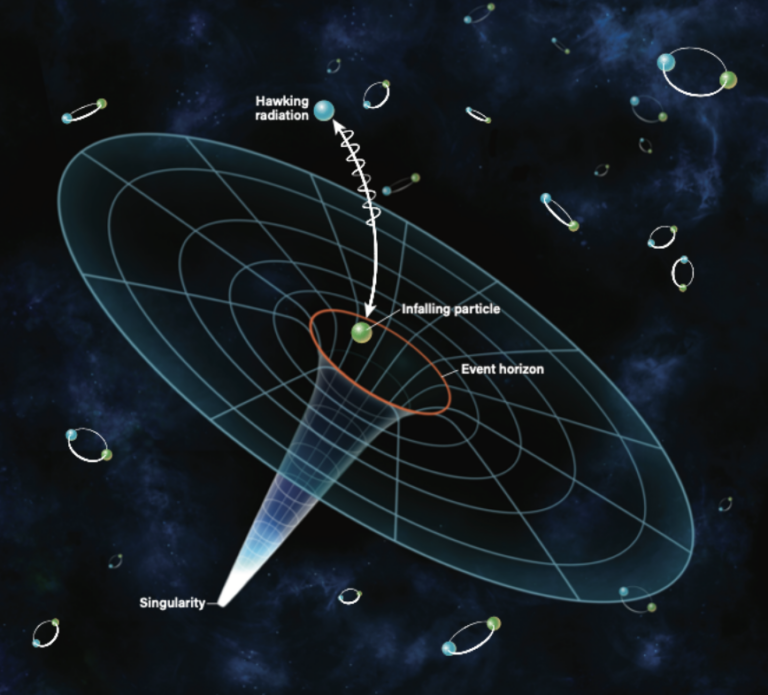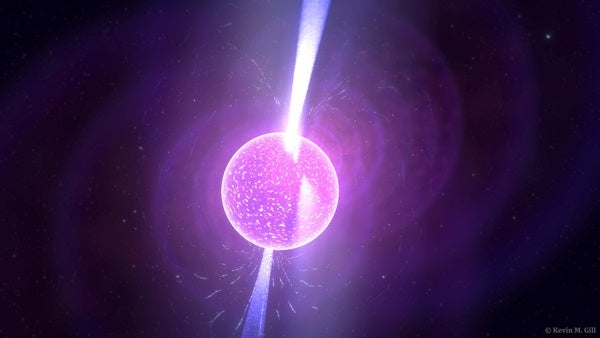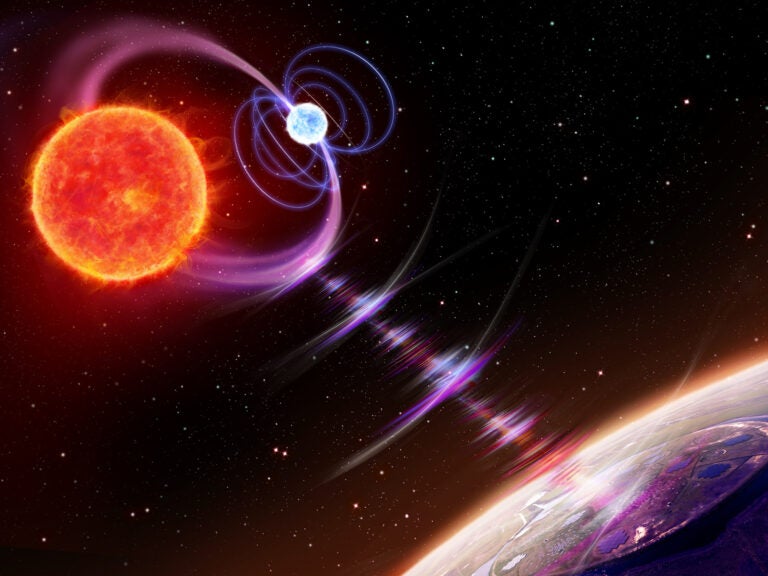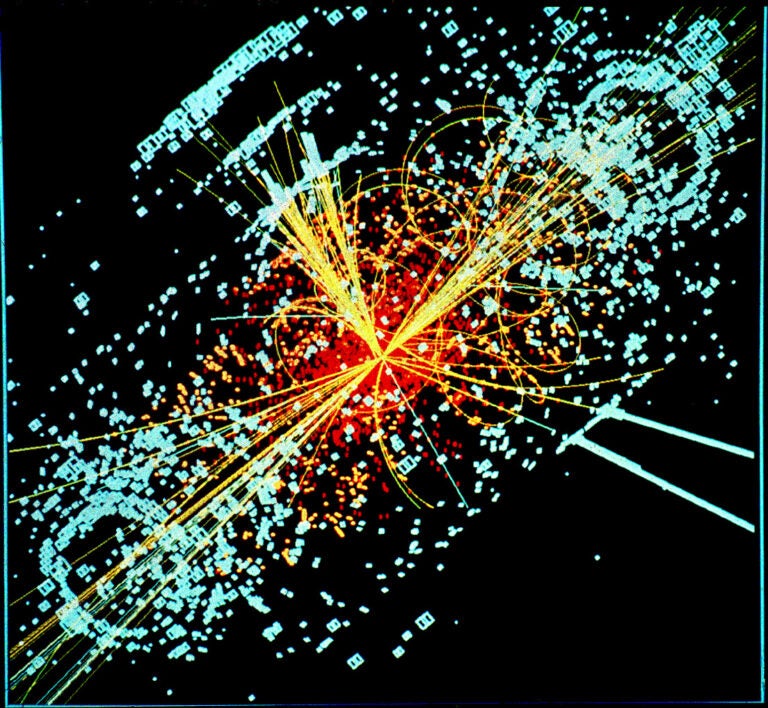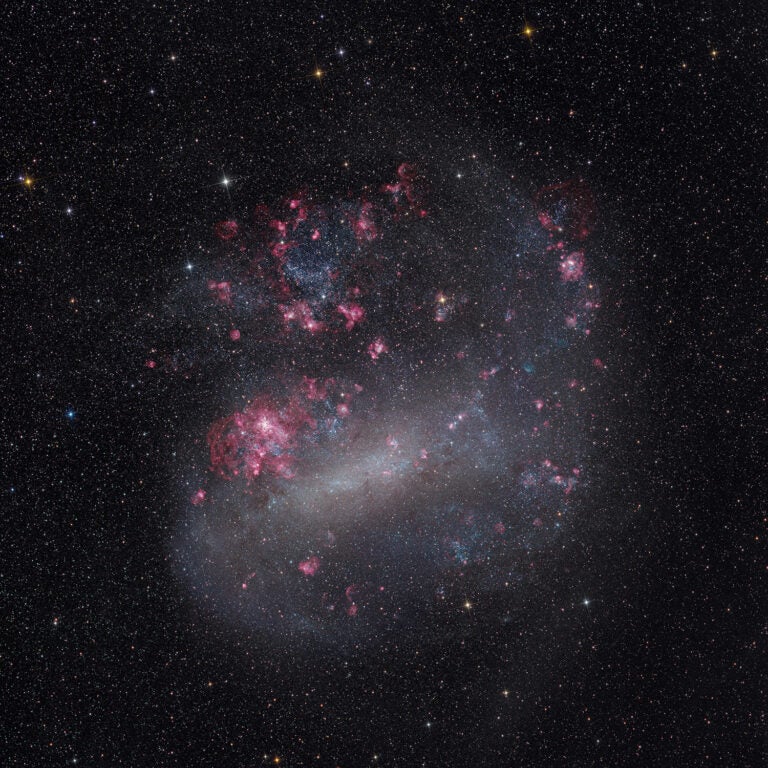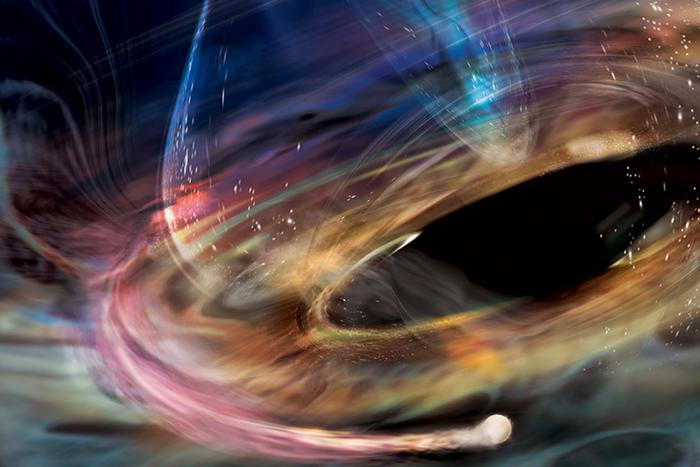Black holes are surrounded by accretion disks of matter — mostly normal matter. As the normal matter interacts with itself, it loses angular momentum, ultimately falling into the black hole. Although dark matter can sometimes get swept up into this disk, it doesn’t really interact with the other material, and remains in orbit, rather than falling in.
NASA/JPL-Caltech
Dark matter does interact gravitationally with normal matter and, yes, that includes black holes. So dark matter can absolutely fall into black holes.But there’s a catch. Matter, both dark and normal, can orbit a black hole without falling in, provided it’s beyond the event horizon, the black hole’s point of no return. But as normal matter clumps together and interacts with other (normal) matter, friction causes that matter to lose energy through heat. This causes the matter to slow down and lose angular momentum, which it needs to stay in orbit. If the matter loses enough angular momentum and slows down enough, it will fall into the black hole.

Bringing the universe to your door. We’re excited to announce Astronomy magazine’s new Space and Beyond subscription box – a quarterly adventure, curated with an astronomy-themed collection in every box. Learn More >>.
Dark matter is different. By nature, dark matter rarely interacts either with other dark matter or with normal matter, and therefore it isn’t likely to experience friction or lose angular momentum. Because it can maintain its angular momentum, most dark matter orbiting a black hole tends to stay in orbit around the black hole without falling in.
Alison Klesman
Associate Editor

